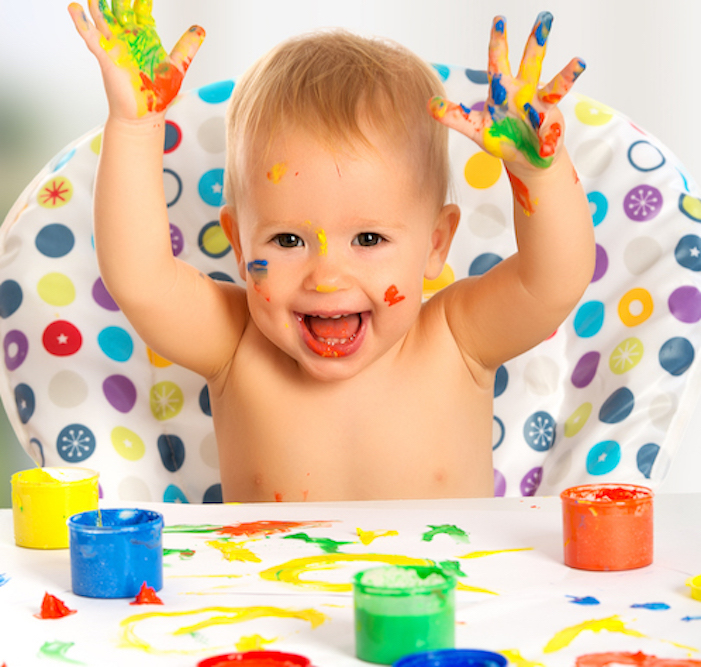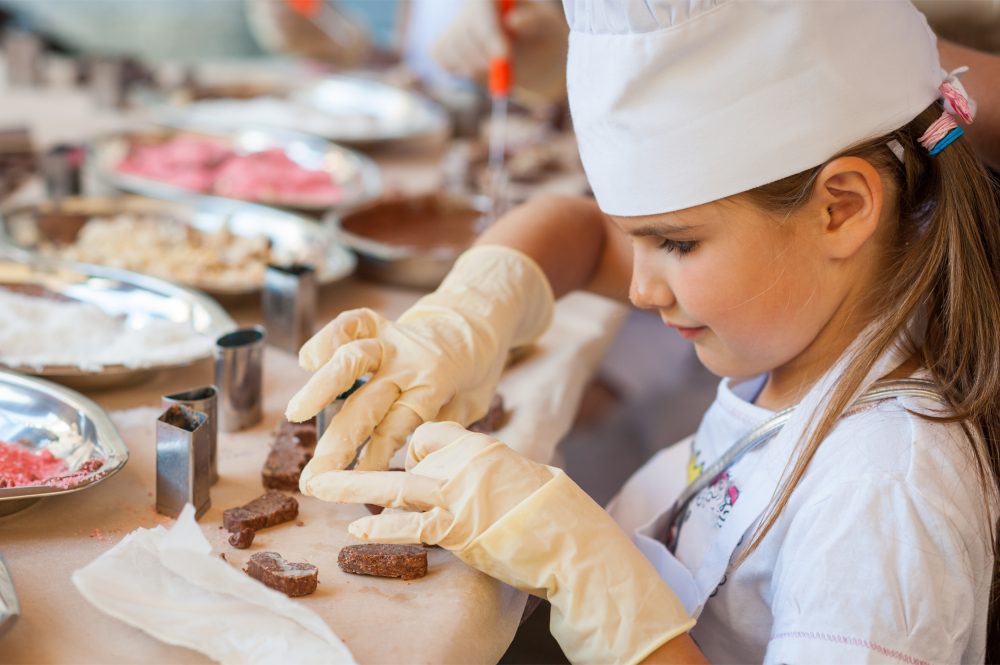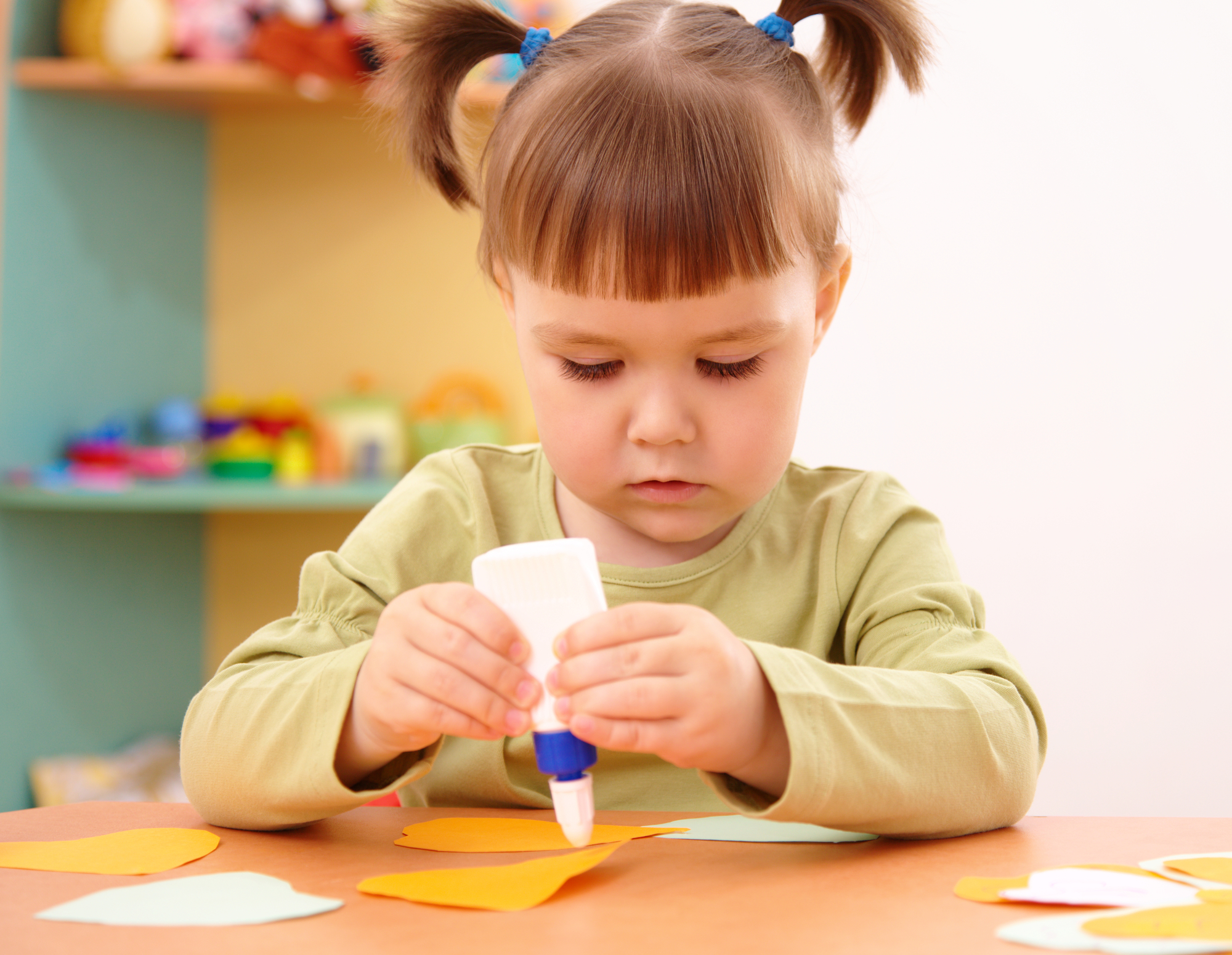Messy play fosters a child’s imagination, curiosity, experimentation and encourages good concentration. It allows young children to make their own discoveries using all their senses and is an essential part of childhood.
Parents may be unaware by sending little Johnny off to kindergarten wearing his “good clothes” in fact prohibits his ability to have a full sensory experience, he may be scared to get his clothes dirty. This maybe something to take into consideration next time you’re getting dressed for kinder.
I remember vividly making mud pies as a child and using the red berries I picked off our neighbours tree to decorate them. Of course my mum told me off for getting my dress dirty, however the fun of making the mud pies stays with me till this very day. Even as an adult I still look at the red berries on the tree and wish I was that kid again.
Here are some essential notes to help you understand the benefits of messy play:
- What is Messy Play for youngsters or kids?
Messy play can involve activities such as jumping puddles, finger painting, playing with sand, clay moulding, play dough, slime and of course making mud pies.
It is where children can derive positive experiences through using different materials and experience various senses including touch, smell, taste, movement, balance, sight and hearing while using them.
Other materials that could be used include: soapy water with bubbles, spaghetti play, rainbow rice, shaving cream painting, food dough, dry pasta and the natural world through nature parks.
At home encourage messy play by setting up a play area by laying plastic covers down to make it easy to clean up. Also, make use of messy play clothes and aprons to protect from stains.
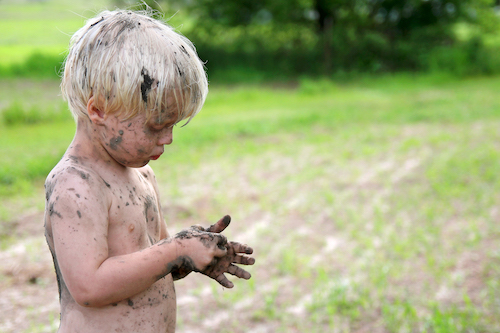
- Why involve your children in Messy Play?
Messy play is an important activity that could help your child develop their cognitive and intellectual skills, even their ability to socialise. It could also foster personal, emotional and physical development. Messy play can also develop their communication and language skills. It can even develop your child’s creativity. Through messy play, kids could learn to explore, discover and experiment.
- Cognitive and Intellectual Development
Kids learn and develop problem solving skills through messy play. They also gain an understanding of cause and effect. They also develop math skills which specifically include: determination of size, how to count, matching, classifying, sorting, determining which is more or less, full or empty; including which one is sinking or floating.
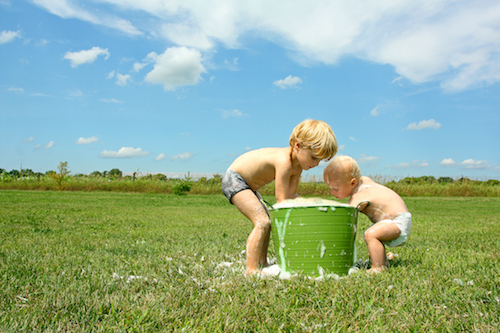
- Personal, Social and Emotional Development
Messy play allows children to feel good about the choices they have made while at play; it helps build self-confidence and self-esteem. Children also learn how to cooperate with other children with whom they are playing with. Messy play is one way of helping children make friends, socialise and bond with other children, parents and other adults at home. It can also allow the development of new experiences, or be an outlet of feelings and thoughts. It also allows the development of concentration, problem-solving skills, and planning.
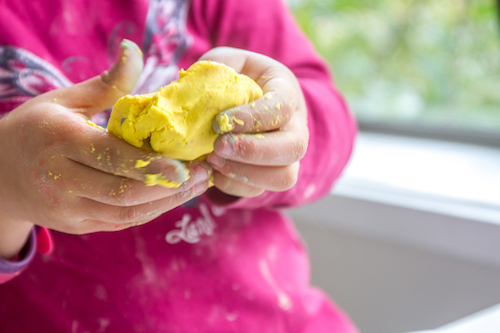
- Physical Development
Messy play allows the practice of fine motor skills which include: pouring, measuring, whisking, stirring, shaking and others. They get to use their hands and feet indoors and outdoors. They also continue to learn to control their bodies as they try to accomplish tasks.
- Communication and Language Development
New words are learned by the child once they play. Words like soft, hard, cold, warm, gooey and others could be learned through the process. As they play with others, they learn to talk about it and pre-writing skills are developed as they learn to grasp, pour and do some hand-eye coordinated tasks when they use the materials in a classroom set up. Also, when painting or making marks in sand, it aids an early form of writing.
- Creative Development
Creativity is developed by the child. Messy play allows children to be creative by creating things they like through playing with food dough, painting, and other messy activities which could help also in building the child’s self-esteem.

- Messy play allows both exploration, discovery and experimentation.
Mixing things together and discovering what happens to them is one way of helping them experiment. This may be like mixing sand and water and discovering the result of the activity. Children are also able to meet other children and together they get to explore various activities together.
- When engaging your children in Messy Play, make sure that you supervise the activity to prevent choking or other hazards.
As we know children are sometimes stubborn and will put some of the play items into their mouths, to prevent this be sure to be with them when they play; and tell them that those things are not edible.
Reap the benefits of messy play by letting your children go through the process. As parents, this may take some effort in cleaning up but it will be all worth it once your child experiences it.
You may also like to read:


